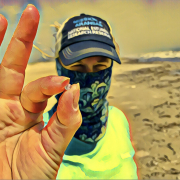
As people across the world adapt to social distancing due to COVID-19, we are beginning to feel its full weight on our own lives and global health, made especially stressful by the fact that there is no definitive timeline or endpoint. It’s true that being restricted from spending time outside or being with friends can be difficult. However, all citizens have a part to play in reducing the impact of COVID-19 by complying with “shelter in place” orders. Since COVID-19 is spread through even the smallest forms of human contact, it is essential to reduce the ways we come into contact with colleagues, friends, or anyone in our community.
Surprisingly, there is an additional benefit: the decrease in public excursions have lessened certain environmental problems, such as air and water pollution. With less people going out in cars or taking flights, emissions of nitrogen dioxide, a common air pollutant, have decreased significantly. This has even cleared up smog in major cities in America as well as China and Italy, areas that were hit hardest by the outbreak and are under the strictest lockdowns. As Italian citizens have been sharing on Twitter, the waters of the Venice canal have started to clear as well. This is because the source of the built-up water pollution, tourism cruise ships, have started closing down shop due to the virus. In fact, both industrial shipping and cruise ship industries are facing cancellations in accordance with health guidelines. The industrial ships could also be carrying a different type of product, the plastic nurdle, which if entered into the waterway, would be considered a pollutant.
A nurdle is a lentil-sized piece of plastic that is used to manufacture all different kinds of plastic products. Nurdles can be lost at many stages of the supply chain, like at the nurdle manufacturing site, along railroads, at distribution centers, and off cargo ships that are sending nurdles to processing facilities all over the world, but when they spill into the ocean they can be harmful to sea life. Fish, birds, and sea turtles have all been documented eating nurdles because they look like a natural food source, but these plastics often absorb harmful chemicals such as PCBs and PAHs that are known to impact animals negatively. It is unknown whether shipping cancellations may affect nurdle pollution, but this question and many others regarding the sources and magnitude of nurdle pollution can be answered with continued help from Nurdle Patrol’s citizen scientist volunteers.
Unfortunately, the threat of coronavirus may make it difficult to feel safe when in any public area. Due to the new “shelter in place” mandates across the country, Jace Tunnell, reserve director at the University of Texas Marine Science Institute, expects that “the number of nurdle surveys coming in will drop dramatically.” Volunteer nurdle surveys may be further lessened as some areas have closed beaches and other public spaces. However, conducting nurdle surveys might actually be a good isolation activity in places that allow citizens to visit beaches while taking the necessary protective measures. Tunnell says, “where I'm at in Texas, there are certain beaches that allow people to still go to them as long as people stay 6 ft apart and don't gather in groups of more than 2.” If you are able to visit beaches at this time, it would greatly benefit the Nurdle Patrol if you submit your 10 minute nurdle collection data in a Nurdle Report on our website: www.NurdlePatrol.org.
If you would like to continue helping the Nurdle Patrol during this time, first check if any local beaches still allow visitors. Then, when going to beaches and any public areas, it is advised to wear protective items such as facial masks and gloves, and stay away from others at a distance of about 6 feet. In addition, a new study published in the New England Journal of Medicine found that COVID-19 was detectable on plastics and stainless steel for up to 72 hours, and cardboard for 24 hours. For this reason, remember not to touch any litter pollution from humans, and make sure to thoroughly clean any items you collect with disinfectant before bringing them to your home. For reducing your use on plastic, you might also opt for paper bags vs. plastic if a store does not allow for reusable bags due to the COVID-19, especially since paper seems to have less infection time than plastic bags. If you would like to know what to do with the nurdles you collect, check out our recent article “What do you do with your nurdles?” (https://nurdlepatrol.org/Forms/News/article.php?article_id=47). Finally, it is always important to wash your hands after going outside. However, if nurdle collection isn’t possible for you, Tunnell advises that “if [your area has] restrictions on beach access or leaving the home, then it’s better to wait until these rules change to conduct a survey.”
As this pandemic goes on, our eyes are being opened to some of the effects of temporarily decreasing human pollution; however, the virus is clearly not a solution in any way. There is still a call for us to do our part to prevent plastic pollution in the long term through data collection and policy change, and one way citizen scientists can be a part of this change is through Nurdle Patrol. We can make a difference, and maybe in the future we’ll be able to see those clear waters year-round.
If you’re looking for a way to stay connected with our nurdle community, check out our Facebook page (https://www.facebook.com/groups/352470642178839/)! Remember to stay safe, and if you’re able, happy nurdling!
-----------------------------------------------------------------------
About the author: Arya Das is a high school student from the San Francisco Bay Area. She is currently a junior, and plans to major in environmental engineering and work in pollution prevention or renewable energy after college. Arya works with reserve director Jace Tunnell to write articles for the citizen science project Nurdle Patrol.



